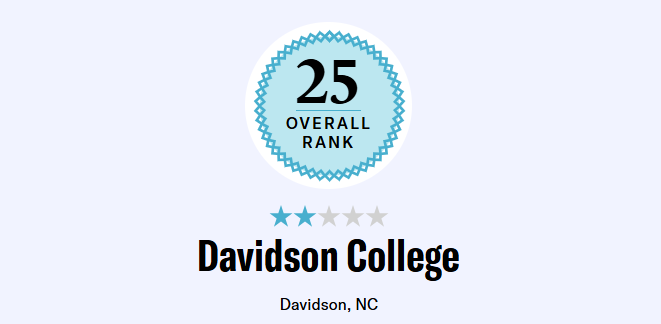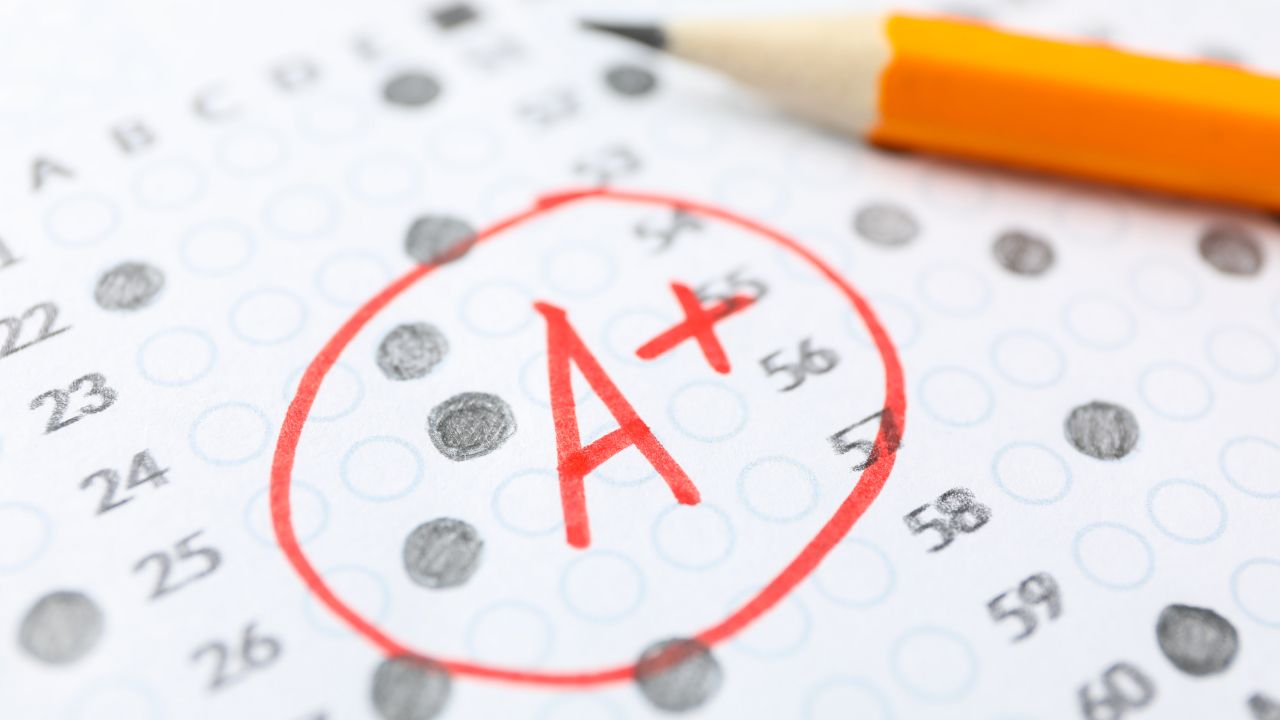Two Significant Concerns About Student Rights at Davidson College
Thanks to your respect and/or support for DFTD, you know that we are the one independent alumni group devoted totally to freedom of speech and thought at Davidson College. Because of this, we have come across startling examples of two practices on campus that may concern you as it does us. You need to know about this and how we are now trying to bring attention to it in a positive manner. But first, a bit of background.
As you know, we took a stand as early as 2018 for establishing “Davidson’s Commitment to Freedom of Expression.” We applaud the leadership of President Doug Hicks and faculty members for patiently building a near unanimous vote in 2022 to affirm its principles for our alma mater. Since that achievement, our central focus has been to support students’ rights under the “Freedom of Expression” statement and bring attention to their concerns.
We had the results from surveys of Davidson students commissioned separately by DFTD, Davidson Journalism Professor Issac Bailey, and the Foundation for Individual Rights and Expression (FIRE). Each found a high degree of reluctance among students to express their personal views on controversial topics --- widespread patterns of self-censorship.
We began helping students and faculty hold events to promote a robust exchange of ideas and civil discourse. We publish and encourage the views and concerns of students. We monitor the state of freedom of expression on campus. We advocate for changes to policies and practices that have a negative impact on the student experience, but otherwise could go unnoticed. That final point – the advocacy work – is our topic today. Our initial efforts built a sense among a growing number of students that DFTD is the “go-to” resource when they feel attempts by anyone to compel them to accept controversial political views with which they disagree. They look to us to help them get relief.
In recent weeks, two significant issues have been brought to our attention by students and their parents. So far as we know, we were the only entity to report these instances to President Hicks. The first issue is the incidence of statements in the syllabi of courses in some departments that expect students to regard themselves as either “oppressors” or “oppressed.” In some classes, it appears to be required for enrollment and evaluation. The second significant issue involved all scholar-athletes being mandated to view and discuss a provocative documentary film entitled, “I’m Not Racist…Am I?” Many were insulted.
Anti-Oppression Statements in Syllabi
These syllabi were provided to us by the parent of a student, and you can read them in full in the attached image. It is our understanding from students that these types of statements are used in other departments, and not just limited to the examples that we were provided. From a wider sample, we estimate that something on the order of 10-15 percent of Davidson courses have something similar. In some cases, the message is more coercive. In others, it is merely suggested or invited. See what you think.
Our opinion is that statements like these, and others, contribute to the recent FIRE survey finding that roughly 66% of Davidson students don’t feel comfortable disagreeing with a professor in class. The incidence of compulsion of thought and self-debasing may be a small minority at this time. If neglected, it could become a standard method for pressuring students on what to believe.
Some of these anti-oppression statements make sweeping demands that students “actively identify and confront oppressive behaviors.” They go on to say that “We can only identify how power and privilege play out when we are conscious and committed to understanding how white supremacy, patriarchy, classism, heterosexism, cisgenderism, ableism, and all other systems of oppression affect each of us.” That’s inclusive shaming.
These statements in classes such as Spanish 101, and Cell Biology go on to state that students are “expected” to
- “understand and embrace that you will feel discomfort and pain as you face your part in oppression, and
- realize that this is a necessary part of the process of liberation and growth”,” and
- that students should “set anti-oppression goals and continually evaluate whether or not you are meeting them, and reevaluate these goals as needed.”
We recognize that such questions, especially in relevant class assignments, deserve to be discussed by any academic community. Our concern is that they appear to be coerced even where irrelevant to a course, and they impose only one extreme interpretation of highly controversial themes---with no hint of balance or allowance for dissenting views.
We anticipated arguments that these types of statements or lessons in classes are somehow protected by the American Association of University Professor’s statement on Academic Freedom. However, we found that the AAUP clearly calls for protecting students from extraneous indoctrination, stating:
“Teachers are entitled to freedom in the classroom in discussing their subject, but they should be careful not to introduce into their teaching controversial matter which has no relation to their subject.”
In a subsequent clarification that became AAUP policy in 1970, this was added:
“Second 1970 comment: The intent of this statement is not to discourage what is ‘controversial.’ Controversy is at the heart of the free academic inquiry which the entire statement is designed to foster. The passage serves to underscore the need for teachers to avoid persistently intruding material which has no relation to their subject.”
This does seem to show mercy for an occasional lapse, provided some correction is learned from it. We believe these anti-oppression directives obviously run counter to the spirit of “Davidson’s Commitment to Freedom of Expression.” We will get to the constructive approach we have chosen after reviewing the second example.
Mandatory Viewing of “I’m Not Racist…Am I?”
The second issue we believe needs attention was the recent compulsory viewing of the film called “I’m not Racist…Am I?” by all scholar-athletes – roughly 20% of the student body, since many seniors ignored it. The directive to view this film came from the Athletic Department (see communications).
Students were told that viewing and discussing this film was “mandatory” - emphasis theirs. This exercise occurred over three hours on a recent Sunday afternoon. Students were given little context about this film other than a link to the film’s website and trailer.
What students were ordered to view was a film that pushed a radical world view as if it were endorsed by the athletic department. For example, in one clip of the film that we uncovered, is the unequivocal repetition that all white people are racist, and people of color cannot be racist. This is based not on genetic science, but on feelings.
The students with whom we have spoken about this film found it offensive, divisive, and personally insulting. They were disappointed that the Athletic Department would compel them to participate in this event for over three hours on a Sunday afternoon.
Again, DFTD does not object to discussions among teammates or anyone on any topic, including weaponized definitions of racism. Compelling them to do so, guided only by the extremist views of the film producer, is a hazardous way to go about it. Will those teammates classified as “the oppressed” and “the oppressor” continue to trust and respect each other?
We were concerned that the endorsement of such a film by the Athletic Department could signal to the scholar-athletes what views the institution does, and does not require, and thus have has a silencing effect on them. This self-silencing is evident in the recent FIRE survey that found that over half of students regularly avoid informed dissent in the classroom.
Our Advocacy Work and How You Can Help
We immediately reached out to President Hicks and his administration about the syllabi concerns over a month ago. The response we received stated this is essentially an accepted, protected practice at Davidson. We were told:
“In accordance with our commitment to the principles of academic freedom as formulated by the American Association of University Professors, the college respects and does not restrain the right of faculty members to establish and enforce their own standards of professional judgment, which includes the right to frame each course through its syllabus.”
We get that. Yet, as we noted above, the AAUP statement on academic freedom goes further and instructs faculty members to avoid inserting into their courses controversial material that is unrelated to the subject matter. We fail to see how requiring students to accept personal “anti-oppression goals” has anything to do with learning cell biology, multivariable calculus, or learning the Spanish language.
Finding ourselves at an impasse, we wondered if anything would be done to remedy this --- and, if so, whether we would ever hear about it, in light of personnel privacy protections. We were encouraged by President Hicks to take time to speak with two seasoned veterans on campus who could help us understand what could and could not be done: former Dean of the Faculty and Economics Professor Clark Ross and Head Football Coach Scott Abell. We agreed to have a delegation of our Board do that. It proved to be highly beneficial.
During an hour and a half with Dr. Ross, it emerged that the more accepted approach would be to not target individual faculty members or departments or even have someone counsel them. Such an intrusion would likely be met with resentment or worse, especially if they felt they were following accepted practice. His advice took a more deliberative approach, to which we will return after an account of our second meeting.
Coach Abell was equally generous with his time and candor. Befitting his legendary courage to “go for it on fourth and long,” he did not punt the ball at us. We are not aware of any other coach who attended the offensive film and its troublesome message that “racist” and “white” are synonymous.
He saw the potential risk and benefit in the film’s theme, that which divided students according to the color of their skin without regard for their personal beliefs, feelings, or actions. He had sensed that it could disrupt the essential unity of his team.
He gathered all of his football team, which is undoubtedly the most exemplary unified, multi-racial assemblage anywhere on campus, to talk about it. He addressed the film and what impact it held. He had them talk about how it made them feel. Some resented being ordered to see it. Some felt insulted by a message that they were either helpless victims or racists, respectively. While disagreeing with much of the content of the documentary, Coach Abell concluded that the discussion he had with them was beneficial, perhaps therapeutic. This increased our pride in these young men and left us wishing other coaches had also questioned departmental orders.
Coach Abell shared his strong belief that mandatory requirements are appropriate for certain disciplines. Every member of the team is absolutely mandated to get in condition, lift weights, run laps, be prepared and on time, drill their assignments, and trust their teammates. This was in contrast to mandated compulsion about what to believe, which could threaten the unity of teamwork and we believe should never have been inflicted.
He emphasized that the Davidson campus is in the best health he has seen in his six years here, especially with regard to a spirit of mutual respect and open communication with one another in the last two years. We can take note of such a tribute to the new administration.
Dr. Ross had explained that the more accepted procedure for dealing with any issue like this might be for the President and Dean to refer the concerns to faculty for formal deliberation – first to a standing committee and then to the Faculty Executive Committee. Their findings and recommendations on policies for student rights could then be reported to the full Faculty for thorough debate. We earnestly endorse this recommendation and will ask President Hicks that it be initiated without delay.
We believe this deliberative approach offers every academic department the benefit of proper guidance without targeting anyone for embarrassment. The Athletic Department and other offices would naturally receive the message that emerges. All could learn the best ways to introduce particular political views to students while respecting their rights against coercion. It would suffice to show students how to think without telling them what to think. It would be the information we all can use to build confidence in almaour alma mater.
We hope you see how important and unique DFTD is to the student experience today. Unattended, these examples could become trendy and systemic, causing many students to feel they are disrespected and don’t belong. If the purpose is noble, there should be little objection to our publicizing them. Early disclosure would have been better than discovery.
We will continue to work with students, faculty, and administration to ensure that Davidson supports a healthy, robust civil discourse environment that is tolerant of diverse ideologies.
We encourage you to join us in voicing any concerns you may have around these issues by signing this petition. Only you can show the depth and width of support for freedom of thought and conscience. We hope you’ll continue to support DFTD both philanthropically, and by sharing the work that we do with others. Thank you.
Sincerely,
John Craig ‘66 Connie Buehler ‘82 Richard Hendrix ‘74
Emily Koons Jae ‘09 Ross Manire ’74 Jim Martin ‘57
Jim McNab ’66 Steve Smith ‘66 Kenny Xu ‘19
The Board of Davidsonians for Freedom of Thought and Discourse



